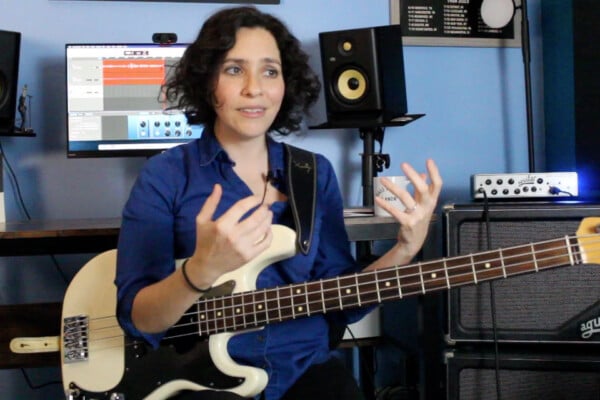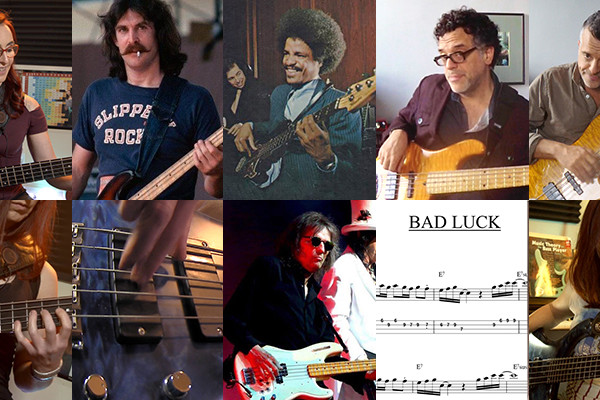The Lightbulb Moment: The Lesson Agreement

Many people question the validity of music lessons. Are they worth it? Why do they cost [enter amount]? And what’s the point of having a teacher when you can learn on your own?
The funny thing is, it’s not just the student who asks these questions; it’s the educator as well.
A good teacher will ask: Am I providing value to the student? Is my expertise worth the hourly rate? Am I providing information that the student might not find when left to their own devices? They should want to answer these questions in a positive way, striving to improve their methods and perform better at their job.
Whether you’re the one taking lessons or teaching lessons, the reason for doing so is often the same. As a student, you’re ultimately taking lessons because you want to. You want to improve, learn, and be inspired. Similarly, as a teacher, you give lessons because you want to. You want to help someone improve, learn, and be inspired.
The most important thing to remember about lessons is that learning is always a two-way street. It is an agreement—a moment when both parties say, “I respect your time and what you are willing to do.” Part of this agreement means that the student has to be somewhat vulnerable. By taking lessons, they are admitting that they don’t know everything and that they are willing to learn when walking through the door. At the same time, the teacher is agreeing to be a reliable source of information, authoritative enough to inspire a work ethic, and empathetic towards the student’s ability to learn, practice, and improve.
As a student, you may be extremely happy with your teacher… you show up to lessons, put in practice time, and see enough improvement to feel like you’ve found the right person to guide your musical journey. Your teacher is providing you with enough information, inspiration, and insight to make you feel good about taking lessons. Congrats! That’s awesome. Two-way street.
If you’re unhappy with your teacher, I encourage you to consider a few things. First, are you and your teacher both honoring the “time vs. respect” agreement? And second, if you feel like the agreement isn’t being honored, who is the person guilty of infringement?
In some cases, you might not have the right teacher — simple as that. They may not be adept at interpreting your learning style or perhaps they don’t give you appropriate assignments. It often takes a couple of lessons to come to this conclusion (for both parties), so be careful not to rule out your teacher before they’ve had an opportunity to figure out what or how to teach you. If it’s truly not the right fit, then you may want to look for another option.
In other cases, you might need to “check yourself before you wreck yourself” by asking the following questions:
- Do you really want to be taking lessons?
- Are you overly-critical of your teacher and their methods?
- Are you purposefully trying to negate the information they provide you?
- Are you demanding to be shown information without internalizing it or putting in the time to practice on your own?
- Are you constantly making excuses for things (showing up late, not practicing, etc.)?
It’s not easy to answer these questions honestly. In fact, it is extremely difficult. It means that you need to be critical of your own attitude and determine whether you are vulnerable enough to be taking lessons in the first place. Before being able to learn, you need to admit and accept the fact that you’re willing to learn. It takes time, effort, and work to fill in the gaps in your knowledge. If you aren’t able to do that, then you may need to rethink lessons altogether.
As an educator, it’s obvious when someone comes to a lesson because they feel like they have to and not because they want to. The student may be apathetic, quick to respond in a not-so-pleasant manner, or they simply make a point of telling you that they “already know” what you’re trying to teach them. These are all signals that say “I don’t really want to be here and I don’t respect you as an educator.” If you find yourself feeling this way in a lesson, do yourself a favor and listen with the intention of learning… that simple act will signal to your teacher that you do want to learn from their experience and perspective.
At the end of the day, remember that your teacher is on your side… they want you to learn and they are glad that you’re there. However, they also know that their knowledge is only valuable if the student is willing to accept it. So, the next time you decide to take a lesson, think about this agreement. Respect what the teacher is trying to show you and they will respect your willingness to be there. Ultimately, you’ll be able to learn more and the teacher will be more effective. That’s the two-way street that will help you arrive at your destination.
Ryan Madora is a professional bass player, author, and educator living in Nashville, TN. In addition to touring and session work, she teaches private lessons and masterclasses to students of all levels. Visit her website to learn more!



